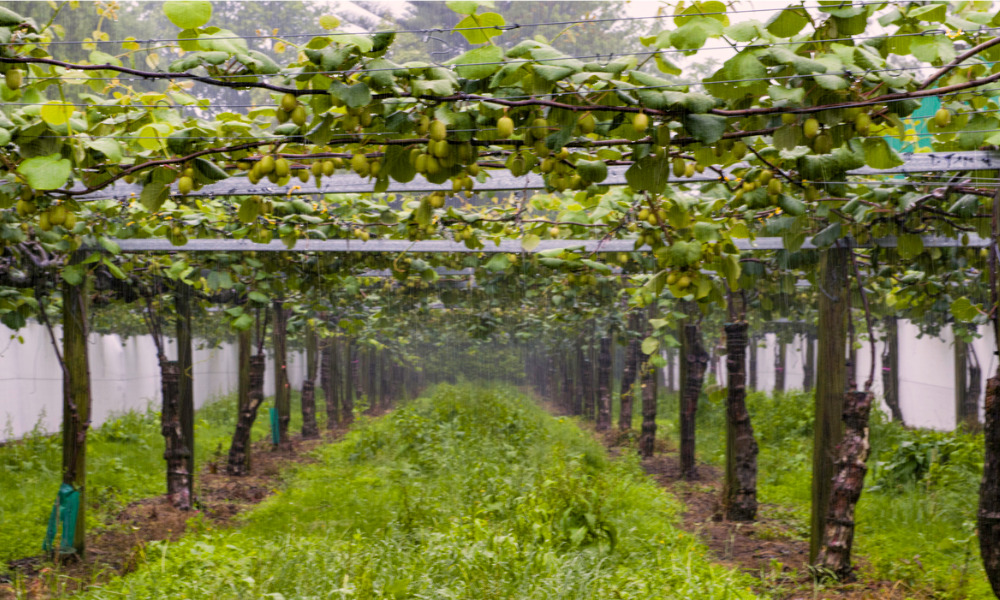
The SunGold kiwifruit becomes an integral part of the land once grafted or planted

The Court of Appeal has affirmed that the license value of SunGold kiwifruit affects the land’s capital value, even if the license is considered personal property.
In Bushmere Trust v Gisborne District Council [2023] NZCA 290, SunGold kiwifruit is a highly valued orchard fruit grown only under a license issued to a landowner by Zespri International Ltd. The license is personal property and not an estate or interest in land. Under the license, when a SunGold kiwifruit orchard is sold, the vendor must include a transfer agreement between Zespri and the purchaser as a condition of the sale. Zespri's approval for the sale or transfer of the license is required under the license.
Bushmere Trust owns a block of land near Gisborne, where SunGold kiwifruit is grown, according to a license issued by Zespri to Bushmere. In 2020, the Gisborne District Council adopted a new approach to assessing the rateable value of SunGold kiwifruit orchards. Previously, the practice of valuation service providers across the country was to deduct the separate SunGold licence value from the property's market value. The council implemented a new approach following a meeting between the valuation providers and the Valuer-General. Consequently, the council assessed the capital value of Bushmere's property at $4,100,000. If the previous methodology had been used, the capital value of Bushmere's property would only have been $2,800,000.
Bushmere objected to the council's 2020 valuation. The Land Valuation Tribunal agreed with Bushmere and concluded the value of the SunGold kiwifruit license should be deducted from the capital value of the property. However, the council successfully appealed to the High Court, which concluded that the capital value of land is a proxy for fair market value, that the SunGold kiwifruit license enhanced the value of Bushmere's property, and that the capital value of Bushmere's property includes the SunGold kiwifruit license.
Bushmere raised the matter to the Court of Appeal. The principal issue before the appeal court was whether SunGold kiwifruit, which is grown on the property under a license issued to the landowner, affects the capital value of the land. The appeal court ruled to dismiss the case.
Bushmere contended that the definition of the capital value of land under the Rating Valuations Act 1998 required the council to value Bushmere's estate or interest in its land. Bushmere that the license Zespri issued must be put aside when assessing the capital value of Bushmere's property because the license is personal to Bushmere and does not run with the land.
Bushmere essentially argued that the value of its SunGold kiwifruit license should be deducted from the capital value of its land.
On the other hand, the council argued that the definition of the capital value of land is a proxy for the land's fair market value. The High Court correctly concluded that the SunGold kiwifruit license was intrinsically linked to Bushmere's land and is properly included in assessing the capital value of Bushmere's property.
The council further contended that if Bushmere's property were sold, the vines and license would be transferred and novated to the purchaser. The sale price would reflect the value of the vines and the license. As a result, the council argued that it is artificial to separate the license from the vines.
The court of appeal acknowledged that capital and market values are not identical concepts. The court pointed out that the text, purpose, and context of the definition of capital value under the act means that kiwifruit vines and supporting structures can form part of the capital value of an orchard property.
The court explained that even if Bushmere grows SunGold kiwifruit under a license, the SunGold kiwifruit becomes an integral part of Bushmere's land once grafted or planted. The court found nothing in the law that excludes vines or other horticultural crops grown pursuant to a license. As a result, although the license is personal property, the vines grown under that license can become a component of capital value under the act.
The court further pointed out that if Bushmere decided to sell its orchard, it would expect to obtain a price that reflected the fact its orchard comprises SunGold kiwifruit. Any sale's reasonable terms and conditions would include Zespri consenting to transfer Bushmere's SunGold kiwifruit licence to a willing but not anxious purchaser. Absent such consent from Zespri, the sale would not proceed. The hypothetical sale envisaged in the capital value definition includes the transfer of the SunGold kiwifruit licence to a hypothetical purchaser.
The court ultimately said that while the license is personal property, the price that Bushmere would expect to obtain if it were to sell its orchard would reflect, among other matters, the fact that the kiwifruit vines grown by Bushmere are SunGold. The court pointed out an orchard planted in SunGold vessels for a materially higher price than an orchard planted in other vines. The sale is at a per hectare price, without separate attribution of value to the licence.
The court concluded that the value of SunGold kiwifruit vines is from part of the capital of Bushmere's land. The court held that deducting from the capital value of Bushmere's property a sum reflecting the value of the license would defeat the text and purpose of the act.
Without any justification for revaluing Bushmere's property, the court ruled that the property's rateable value was $4,100,000.